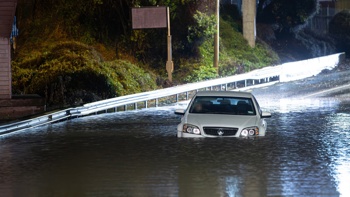Nominations to succeed James Shaw as Green Party co-leader open this morning, after Shaw announced his resignation yesterday on Parliament’s resumption.
The party rules mandate there be one male and one female co-leader, but a rule change in 2022 means that the party only requires one of the co-leaders to be a woman and one of the co-leaders to be Māori.
Because those criteria can be filled by one person, and Marama Davidson is wahine Māori, the position Shaw vacates can be filled by someone of any ethnicity or gender.
There is only one candidate people are talking about: Chlöe Swarbrick, who enjoys broad support from the party members, caucus, and the public at large.
She regularly features in Preferred Prime Minister polls, and often polls higher than Shaw or Davidson. She doesn’t poll very high, but simply appearing in that poll as an MP from a minor party who is not already leader is a feat.
But whether Swarbrick wants the co-leadership is a legitimate question. Julie Anne Genter is another logical contender.
/cloudfront-ap-southeast-2.images.arcpublishing.com/nzme/AOEK2WMWOZF4ZCNST6UG2AL2YU.jpg) Green co-leader James Shaw and Chlöe Swarbrick hours after Shaw announced his resignation. Photo / Mark Mitchell
Green co-leader James Shaw and Chlöe Swarbrick hours after Shaw announced his resignation. Photo / Mark Mitchell
With Shaw gone, the Greens may be looking to have someone comfortable with numbers in the co-leadership. Swarbrick and Genter would both fulfil this, having held a number of financial portfolios for the party.
The third name in the mix is Teanau Tuiono.
Nominations are open until February 14.
The new co-leader is expected to be announced on March 10.
When Shaw entered Parliament in 2014, he was already an outlier to the stereotype - rightly or wrongly - of hemp-wearing, tree-hugging Greenies; he had a corporate background, albeit in roles where he tried to steer companies to sustainable practices.
It was in those roles that he decided he wanted to become an MP, knowing he could advance the causes he cared about much more in Parliament.
Despite being an MP for only a handful of months, he put his hand up for the co-leadership contest in 2015, and when he won, one of the first things he said was that he was open to working with the National Party on climate change.
Therein lies Shaw’s strategy. It was more important to him to have effective legislation that survived changes in government, rather than something stronger that would just be repealed before it could really make a difference.
Thomas Coughlan is deputy political editor and covers politics from Parliament. He has worked for the Herald since 2021 and has worked in the press gallery since 2018.
Take your Radio, Podcasts and Music with you









